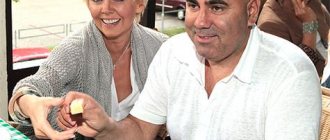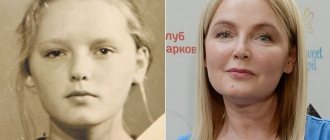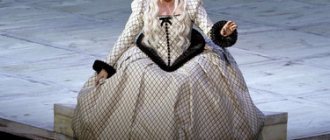The brightest winners in the history of Eurovision
In the midst of one of the most popular musical events - Eurovision - we decided to remember the most prominent winners of this competition in its entire history. Who do you remember most?
ABBA
The triumphant ascent of the Swedish group ABBA with Eurovision . The year before, they had no name and only a few songs in their repertoire. The song Waterloo in 1974 won the hearts of not only the British, but also the whole of Europe , rising to the top of the international charts in a matter of days.
Celine Dion
After Eurovision, fame came to one of the best-selling singers in the world, Celine Dion (47). In 1988, the young singer appeared in front of a television audience of 600 million people with the song Je Danse Dans Ma Tete . She represented Switzerland .
Toto Cutugno
In 1990, the winner in Zagreb was the famous Toto Cutugno (71). He won the competition with the song Insieme , giving Italy the right to host Eurovision in 1991, where Cutugno became the host.
Secret Garden
The group Secret Garden , which represented Norway , won Eurovision 1995 and after that became world famous, releasing several successful albums. The victory at Eurovision ensured, in particular, the success of their first album Songs from a Secret Garden . It has sold nearly a million copies worldwide!
Dana International
also unique cases at Eurovision So, in 1998, the winner was Dana International , which to this day remains the only representative of transsexuals who participated in the competition. The girl used to be a man named Cohen.
Ruslana
In May 2004, Ruslana (41) entered the international stage - the Ukrainian singer amazed the Eurovision in Istanbul . The single “Wild Dances ,” which brought her victory, and the album of the same name captivated audiences in more than 25 countries. For ninety-seven weeks, Ruslana led 14 different charts in Europe.
Lordi
2006 also turned out to be rich in surprises. A record number of points - 292 - was received by the Finnish rock band Lordi . Even before the competition, the musicians caused a great stir in the media with their monster masks and a song performed in the tradition of heavy rock. After their victory, Eurovision was jokingly called "Monstervision" .
Dima Bilan
In 2008, it was finally the turn to rejoice in Russia. At Eurovision 2008, Dima Bilan to Belgrade with the song Believe and a large “support group” . For the singer, this was the second chance to win, since the first time, in 2006, she went to the Finns Lordi . The singer performed in the company of the Hungarian virtuoso violinist Edwin Marton (41) and the famous figure skater Evgeni Plushenko (32). Based on the results of audience SMS voting, Russia scored 272 points. Thanks to this victory, Moscow became the capital of the 54th Eurovision .
Alexander Rybak
Predictably and expectedly, at Eurovision 2009 in Russia the winner was the candidate from Norway of Belarusian origin Alexander Rybak (29) with the song Fairytale . The simple but soulful performance of the boy with the violin touched the whole of Europe : he scored 387 points, which is an absolute record in the history of the competition. 15 countries awarded the highest score to the winner.
Lena Mayer-Landrut
The victory predicted by the bookmakers also went to the German singer Lena Mayer-Landrut (23). Literally a week after winning the national selection, the video for the song Satellite received more than 2.5 million views on the Internet (and by the time of the first semi-final - more than 9.7 million). As a result, Lena scored 246 points.
Elle and Nikki
In 2011, the winners of the competition were the romantic couple Elle and Nikki from Azerbaijan . They performed the song Running Scared .
Loreen
One of the most recognizable songs in recent times has been Euphoria by Swedish singer Loreen (31). In 2012, it was she who took first place and topped all the charts. Today Loreen is one of the most popular singers in Europe.
Emily de Forest
Then the world chose to give the laurels of victory to the Danish singer Emilie de Forest (22). She amazed everyone with her spontaneity.
Conchita Wurst
But perhaps the most high-profile event of the competition was the victory of Conchita Wurst (26) in 2014, who attracted attention not only with her facial hair, but also with her strong voice and energy.
Well, now we sincerely hope that the next bright winner of Eurovision will be the beautiful Polina Gagarina (28)!
Light and a little Uno
All this was done to give the whole of Europe the impression that the competition, albeit in a newly invented format - the online concert Eurovision: Europe Shine a Light - was still taking place in the Netherlands. Even if his goals are now different: not to choose the best artist and reward him, as usual, with a crystal cup in the shape of a microphone and a tour of the continent (in all countries, as in Russia, concerts are now canceled due to COVID-19), but to show that European countries are trying to support each other and are still together. Even during a pandemic. And at the same time, give artists from 41 countries participating in the competition the opportunity to tell live what they can do during quarantine.
Well, to share kind words addressed to probably the most important people on the planet right now: doctors, nurses, nannies, ambulance drivers... Footage of doctors at work was especially often broadcast thanks to the Italian singer Diodato or the Englishman James Newman (the younger brother of the star of the "tenths" years" by John Newman). Brother-2 even reminded that “we must say thank you to all the health workers and help them, trying to stay healthy, because safety comes first.” In general, it was the most unusual and humanistic show on the day of the Eurovision final...
Therefore, by definition, there should have been no winners and losers that evening. But they eventually showed up.
The idea that a competition with voting from television viewers in Europe and Australia could be held, albeit in an online format, was still present at first. No wonder the show took seven weeks to prepare!
Yes, Little Big didn’t win, but the clear winners of “this competition without competition” were new technologies
There were technical capabilities. And such a “virtual version” of the oldest song competition in Europe would be of considerable interest. After all, the competition is usually filmed by the television team hosting Eurovision. And if, in a pandemic, picture and sound were provided, in the language of television, from each 41 participating countries, then, perhaps, it would become even more exciting - a creative approach to their filming by directors and set designers would be added, it would be interesting to see other scenes and halls. But this idea was eventually abandoned: according to the rules of the competition, all participants must be in the same conditions. This means, on the same stage and in the same circumstances...
Therefore, they decided to do without voting and choosing winners (although, probably, few doubted that our Little Big, whose competition song Uno collected almost 90 million views, 15 times more than its closest rivals, would most likely win). They preferred a format where the presenters take turns communicating live with participants at home in their countries. They are allowed to speak and shown fragments of the clip. Many also tried to sing live. The same Diodato, James Newman, Swiss Gjon Tears. Well, our Little Big, who were not too lazy to present a fragment of an acoustic version of the Uno song and reminded Europe that they should always expect something new from them. By the way, the next clip of the “little big” Hypnodancer, published on May 8, has already entered the popularity lists in 26 countries...
If we talk about the competition as a whole, it would hardly have demonstrated any obvious hits and discoveries if it had been held in the usual format. Most of the songs are traditional Euro-pop. And from the total mass, perhaps, only Little Big, Bulgarian Victoria, immersed in the world of fantasy and beautiful fairy tales, the romantic and exquisitely sad Swiss Gjon Tears and ex-participant of the Russian “Voice” Estonian Uku Suviste, who is now produced by Philip Kirkorov, stand out.
Yes, Little Big didn’t win, but the clear winners of “this competition without competition” were new technologies. The entire two-hour show Europe Shine a Light was carried out amazingly precisely, organically and practically without overlaps! 90 musicians of the Rotterdam Orchestra played a medley based on the Eurovision songs from their own homes, without ever being out of tune or late. And 41 contestants, one or two lines at a time, took turns singing this very song Shine a Light, which won the competition in 1997, while the camera kept up with each one, editing this polyphony into a single track. And there were no problems with the sound, everyone sang exactly, in a pre-agreed key. Sofya Tayurskaya was the soloist in the room...
Eurovision 2014: winner, 1st place for Conchita Wurst from Austria (VIDEO)
Show Business
11 May 2014, 07:47 | Author: Ivan Rutov
photo:
Who won Eurovision 2014, Conchita Wurst - who is she, comments about the European music competition of stars and politicians, as well as much more, read in the Topnews material.
Who won Eurovision 2014: first place, final (VIDEO)
The winner of the popular Eurovision 2014 song contest was Austrian Thomas Neuwirth, performing under the pseudonym Conchita Wurst. The bearded woman scored 290 points according to the voting results, leaving her rivals far behind.
Conchita Wurst “Eurovision 2014”: song, final, watch online VIDEO
Conchita Wurst: who is this?
Thomas Neuwirth was born in Gmunden, Austria on November 6, 1988. In 2006, the artist took part in the third season of the casting show for aspiring pop singers Starmania. At the same time, he publicly admitted his non-traditional sexual orientation.
According to him, the image of a bearded woman represents a statement in defense of tolerance.
At Eurovision 2014, Conchita Wurst sang a song called Rise Like a Phoenix (“I will rise like a Phoenix”).
The winner of Eurovision 2014 (final) caused a storm of criticism
The victory of such an extravagant singer at Eurovision 2014 caused a wide public outcry. Thus, the leader of the LDPR party, Vladimir Zhirinovsky, responded with indignation at this fact.
“Europe has diarrhea with blood and foam,” he said in the studio of the Rossiya 1 TV channel, adding that Russia liberated Austria in vain during the war.
Conchita Wurst, Eurovision 2014: comments
“Pinch me #Eurovision #shock,” singer Gluck'oZa wrote on Twitter.
“My life will never be the same... So let’s make the word “beard” the trend of this day #Eurovision_2014,” added Victoria Daineko.
—Are you still discussing the bearded woman from Austria? Just imagine how some Russian singers are sincerely jealous of her,” Timur Rodriguez on Instagram. - How they would dream, having generously painted their eyes, sing their songs in a new dress and favorite earrings!
"Eurovision. An effeminate creature with a beard crying with happiness... there’s no need to say anything... everything is already clear,” says Vladimir Solovyov.
“When we took third place with the lesbian duet Tatu, everyone was happy and proud and no one spoke about decaying Europe,” noted Ilya Varlamov.
Kirkorov about Eurovision 2014
In turn, Russian singer Philip Kirkorov called not to judge the winner of Eurovision 2014, Austrian transvestite singer Tom Neuwirth, who performed under the pseudonym Conchita Wurst.
News Media2
“The winners are not judged, the song won. In my opinion, it's a beautiful song. And let's not judge. Judge not, lest you be judged,” said the co-author of the song of the Russian contestants, the Tolmachev sisters, who took 7th place according to the voting results.
Eurovision 2014: final table of results
Let us add that the Netherlands and Sweden took silver and bronze, respectively. The Russians received 89 points, but Philip Kirkorov called the performance of his players quite successful.
“In this situation, we did everything we could! Thanks to all the countries and fans who supported us,” he said.
The full results of the audience voting can be viewed on the Eurovision website.
Join our VK group to keep abreast of events in Russia and the world
Eurovision: to whom the competition gave world fame
MINSK, May 19 – Sputnik. The first Eurovision Song Contest took place in 1956. Over its 60-year history, the forum has given world fame to only five artists who at different times performed at the venues of the popular music show.
1. ABBA - winner of Eurovision in 1974
The vocal-instrumental ensemble was created in 1972 and was named after the first letters of the names of its members: Agnetha Fältskog (vocals), Björn Ulvaeus (vocals, guitar), Benny Andersson (keyboards, vocals) and Anni-Frid Lyngstad (vocals).
World success came to the ensemble after participating in the 1974 Eurovision Song Contest, which took place in England. The Swedish artists won the competition with the song Waterloo. In 2005, at the Congratulations competition, dedicated to the 50th anniversary of Eurovision, this song by the Swedish group ABBA was recognized as the best composition in the entire history of the competition.
Eight of the group's singles reached the top of the charts: Mamma Mia (1976), Fernando (1976), Dancing Queen (1976), Knowing Me, Knowing You (1977), The Name Of The Game (1977), Take A Chance On Me ( 1978), The Winner Takes It All (1980), Super Trouper (1980). Eight of the quartet's albums also topped the charts, starting with the compilation album Greatest Hits, released in Sweden at the end of 1975.
ABBA was one of the most successful groups in the history of pop music and the most popular group created in Scandinavia. Since the beginning of their careers, the musicians have sold about 400 million records. The famous Swedish four broke up in 1986.
2. Toto Cutugno - Italian composer, pop singer, Eurovision winner in 1990
Before participating in the competition, Cutugno successfully collaborated with other famous artists: the Italian wrote 12 melodies for Joe Dassin, among them Salut, Le jarden du Luxembourg, Il etait une fois nous deux; in the early 1970s-1980s he worked with another famous Italian - Adriano Celentano.
In May 1990, Cutugno took first place at the Eurovision festival in Zagreb with the song Insieme 1992.
In the 2000s, the composer released several albums and wrote a number of songs for the Sanremo festival. Among Cutugno's most popular songs in his own performance are Solo Noi (1980), L'Italiano (1983), Serenata (1984), Insieme: 1992 (1990) and Gli amori (1990).
3. Celine Dion - Canadian singer, winner of Eurovision in 1988 from Switzerland
After recording her first two albums, La Voix du bon Dieu and Celine Chante Noel, in the 1980s, Dion became a Canadian sensation. In 1988, she won the Eurovision Song Contest in Dublin with the song Ne Pas Sans Partez Moi.
In 1990, Celine's first English-language album, Unison, was released, which went gold in the United States and six times platinum in Canada. In 1991, Celine Dion and Peabo Bryson recorded a song for the Walt Disney animated film Beauty and the Beast. In 1992, this song won an Oscar, and Celine won her first Grammy Award. Four years later, Celine's fourth English-language album, Falling Into You, became the best-selling album of the year, topping the charts in 11 countries and winning two Grammys. In 1997, director James Cameron invited Celine Dion to perform the song My Heart Will Go On, which became the title theme song for the film Titanic. This song won an Oscar (1998) and four Grammys (1999).
4. Cliff Richard - British popular music performer, represented Great Britain twice at Eurovision - in 1968 (second place) and 1973 (third place)
In 1968, the singer took part in the Eurovision Song Contest in London with the song Congratulations, which was awarded second place. In the English charts, this song took the top line, and the recording Сongratulations sold a million copies.
During the 1970s, Richard recorded constantly, performing live both in England and abroad. In 1973, the singer again took part in the Eurovision contest - his song Power To All Our Friends came third.
Three years after his second success at Eurovision, Richard released the album I'm Nearly Famous, which included the song Devil Woman, which became a hit in the United States. The single “We Don’t Talk Anymore” (1979) brought great popularity to the singer.
In the 1980s, Richard preferred to perform as a duet. Among his partners were Olivia Newton-John, Phil Everly, Sarah Brightman, Sheila Walsh, Elton John. In 1999, he recorded the hit The Millenium Prayer, which took first place in the British hit parade.
The singer's work has been awarded many awards. In 1995, Richard was awarded a knighthood. In total, Richard recorded about 149 singles, 88 albums and 11 collections.
5. Lara Fabian - a singer of Belgian-Italian origin who performed at the Eurovision Song Contest in 1988 from Luxembourg, took fourth place
In 1988 she took part in the competition with the song Croire. This performance marked the start of her international career for the artist. In Europe, the Croire record sold 600 thousand copies and was also translated into German and English.
In August 1991, the singer's first album was released, and her second album, Carpe Diem (1994), went gold two weeks after its release. In total, Fabian's discography includes more than a dozen albums. The total circulation of all her albums has exceeded 12 million copies worldwide. The release of the latest album Le Secret in April 2013 was marked by the singer's world tour.
The Eurovision 2015 final will take place on May 223 in the Austrian capital. The first semi-final, in which the Belarusian duet Uzari & Maimuna (11th serial number) takes part, will take place on Tuesday, May 19.
Life after the song What happened to the Eurovision winners of recent years
Photo: Leonhard Foeger / Reuters / Scanpix
Eurovision has practically nothing to do with the world of big pop music: with the exception of ABBA and Celine Dion, in the entire long history of the competition, no significant world-famous stars have performed at it. Nevertheless, for some, victory in Eurovision opened up new vistas, and for others it became confirmation of their local star status; for others it brought absolutely nothing but short-lived fame. Meduza studied the careers of Eurovision winners over the past ten years.
Ruslana - Wild Dances, Ukraine, 2004
Ruslana – Wild Dances (Ukraine) – LIVE – 2004 Eurovision Song Contest
Eurovision Song Contest
The bet on a combination of a dance song in the spirit of Shakira and Eastern European folk motifs brought Ukraine victory in Eurovision and a new local star, Ruslan. Until now, she remains the best-selling Ukrainian artist both in her homeland and on the foreign stage; however, in the West she is better known as a philanthropist and public figure: Ruslana actively supported the “Orange Revolution” of 2004 and was one of the main figures of Euromaidan.
Elena Paparizou - My Number One, Greece, 2005
Elena Paparizou - My Number One (Eurovision 2005, Kiev) HD 16:9
Ganymidis
The Greek Elena Paparizou, who grew up in Sweden, won the Eurovision Song Contest in Kyiv with a song whose genre can be defined as “shawarma-pop” - a mixture of pop arrangements that were relevant at the time with oriental motifs that would be appropriate in Arab establishments. Paparizou brought Greece its first ever victory at Eurovision and became the number one star in her homeland. She regularly records albums in Greek and English, which do not leave the Greek tops for weeks, is included in the list of the most influential people in Greece according to Forbes, and is making attempts to spread her popularity beyond the borders of her homeland - so far unsuccessfully.
Lordi - Hard Rock Hallelujah, Finland, 2006
Lordi — Hard Rock Hallelujah (Finland) 2006 Eurovision Song Contest Winner
Eurovision Song Contest
Finnish hard rockers Lordi can hardly be called a group - rather, it is a costume show that takes shock rock traditions to the extreme in the spirit of Kiss, Twisted Sister and others. However, this did not prevent the Finns from not only getting to Eurovision, but also getting the first victory in the country’s history at a song contest. Lordi were popular even before Eurovision; the competition did not play any significant role in their career. The group releases an album on average every two years, invariably updating their costumes and sometimes their line-up. The music hasn't changed at all, it's still good old hard rock with all its clichés and without any attempt to take even a small stylistic step aside.
Maria Serifovic - Molitva, Serbia, 2007
Eurovision 2007 FINAL – SERBIA: Marija Serifovic – Molitva
enurion
Serbian singer with a strong voice, Marija Šerifović, won Eurovision due to her vocal abilities, the exoticism of the Serbian language and the emotionality of the song “Molitva”. Šerifović remains a relatively popular singer in Serbia and continues to work in the genre of ballad pop music with an emphasis on lyrics and soulful themes - usually such music is popular with an audience of 30+. Success at Eurovision was perhaps the main achievement in her career.
Dima Bilan - Believe, Russia, 2008
Dima Bilan — Believe (Russia) 2008 Eurovision Song Contest Winner
Eurovision Song Contest
The main Russian young singer of the 2000s won Eurovision only on his second try, calling on violinist Edwin Marton and figure skater Evgeni Plushenko for help. Even before Eurovision, Bilan was a top Russian artist without any chance of breaking into the Western market; He remained this way even after Russia’s first victory at the competition. Be that as it may, after Eurovision, Bilan was greeted as a national hero in Russia - he went on endless tours around the country, which, it seems, have not stopped to this day.
Alexander Rybak – Fairytale, 2009
Alexander Rybak — Fairytale (Norway) 2009 Eurovision Song Contest
Eurovision Song Contest
Alexander Rybak, representing Norway, won Eurovision in Moscow with the highest result in the history of the competition. In “Fairytale” Rybak sings in a strong Russian accent about love and plays the violin - this was enough for a confident victory. "Fairytale" remained Rybak's biggest hit; he himself is a local celebrity in countries with increased attention to Eurovision. Rybak often takes part in television shows both in Norway and in Russia, records Russian-language songs and dubs films. He also wrote a song for the soundtrack to the animated film How to Train Your Dragon 2.
Lena Mayer-Landrut - Satellite, Germany, 2010
Lena Meyer-Landrut — Satellite — Live — Eurovision Song Contest 2010 — Oslo — #22 — winning Song
HerrTurbo
When Germany's Lena Mayer-Landrut won the first Eurovision for a united Germany, she was only 19 years old. The song “Satellite” was noticeably different from everything that was heard at the competition: it was high-quality modern pop music (which was added to the charm by the singer’s cute accent), and not the endless average Europop, as is usually the case at Eurovision. The victory allowed Lena to break into the German charts and go to the competition again the next year, but nothing better than “Satellite” has yet appeared in her repertoire. Lena constantly appears in vocal TV shows like “Voices” and releases new albums that sound more progressive than anything produced by participants in any Eurovision. Lena's popularity, however, does not extend beyond Germany.
Ell & NIkki — Running Scared, Azerbaijan, 2011
Eurovision 2011 WINNER - Ell/Nikki - Running Scared - Live - HD.
engeljav Videomusic
The song of the Azerbaijani duo Ell & Nikki “Running Scared” is similar to all the main pop hits of the 1990s at the same time. Eldar Gasimov and London resident Nigar Jamal won Eurovision more for the country than for themselves - the duo broke up, and the victory did not affect the careers of the musicians. After Eurovision, Eldar was offered to teach at a university in Baku, Nigar was a judge of a Turkish vocal show and concentrated on rather inexpressive solo work. In 2013, she recorded a Russian-language song with Dima Bilan.
Loreen - Euphoria, Sweden, 2012
Loreen - Euphoria - Live - Grand Final - 2012 Eurovision Song Contest
Eurovision Song Contest
Swede of Moroccan origin Lorin won with the song “Euphoria”, which mixed Celine Dion (who won Eurovision, by the way), Florence + The Machine and Europop. Lorin went to fame through participation in the local analogues of the “Star Factory”; victory at Eurovision was the best thing that had happened in her career so far. "Euphoria" sold quite well in countries where there is no interest in Eurovision, including the UK. In 2020, Lauryn is releasing a new album, her first post-contest work, and judging by the single “Paper Light”, this is good modern pop music with a relevant sound in the spirit of FKA twigs and Purity Ring. Perhaps, of all the winners of the competition, it is Lorin who has the highest chances of becoming a singer, who is known not only thanks to Eurovision.
Emmilie de Forest - Only Teardrops, Denmark, 2013
Emmelie De Forest - Only Teardrops (Denmark) 2013 Eurovision Song Contest
Eurovision Song Contest
The Danish Emmie de Forest won Eurovision with a very boring and completely passable song, written as if just for the sake of the competition. Her 2013 album turned out to be just as mediocre. Last year, de Forest released a video for the song “Drunk Tonight” from her upcoming album, filmed, it seems, only so that the singer could show off practically naked in the frame.
Conchita Wurst - Rise Like A Phoenix, Austria, 2014
ESC 2014: Final – WINNER SONG: Conchita Wurst with Rise Like A Phoenix
Eurovision TV
Tom Neuwirth, who performed at Eurovision as the bearded pop diva Conchita Wurst, is doing well. After winning the competition, Conchita turned into an icon of the LGBT movement and the main enemy of traditional values, attended countless human rights events, appeared on the podium at the Gaultier show and released a couple of new videos for the same popular songs as “Rise Like A Phoenix.”
Since 1956. How Eurovision changed, what they sang, who won
Eurovision is the oldest annual international television competition, the participants of which are, first of all, members of the European Broadcasting Union. The competition was organized and shown to the world on the basis of the music festival in San Remo (Italy). All the winners of the main European music scene.
It all started modestly - back in the days of black and white television. The first winner of the competition was the Swiss singer Lise Assia. At Eurovision in 1956, she performed two songs at once - the rules of the competition also changed several times - and the composition “Refrain” won. However, at that time Asia did not have too much competition - only seven countries took part in the competition - Switzerland, Belgium, France, Germany, Italy, Luxembourg and the Netherlands, reports LIGA.net.
The following year, Austria, Denmark and Britain joined the competition, and the Netherlands took the baton of Eurovision winner thanks to Corrie Brocken and her song “Net Als Toen”. In 1958, Sweden joined the competition family, and the prize was taken by the French actor and singer Andre Clavo, who captivated the jury and audience with the love song “Dors, Mon Amour.” 1959 was again successful for the Netherlands - singer Teddy Scholten won with the song “Een Beetje”. The tradition of inviting new countries to participate has not changed - this year a participant from Monaco entered the competition stage. 1960 - France won again - Jacqueline Boyer with the song “Tom Pillibi”, and Norway made her Eurovision debut. The Netherlands refused to host the competition, so the UK hosted Eurovision. In 1961, footage of the audience already appeared in the Eurovision broadcast on television, without which it is difficult to imagine the competition today. Finland, Spain and Yugoslavia joined in, and the French singer Jean-Claude Pascal won, representing Luxembourg with the song “Nous les amoureux”.
In 1962, the French competitor Isabelle Oubre won, performing the song “Un premier amour”. However, France refused to host the competition at home and Great Britain again came to the rescue - Eurovision 1963 was held at the new BBC television center in Sheppard's Bush. The winner of the eighth competition was Denmark with the song “Dansevise”, performed by Greta and Jürgen Ingmann. The Netherlands then, for the first time in the history of the competition, did not receive a single point for the second year in a row.
In 1964, Portugal joined Eurovision. The competition stage took on the shape familiar to modern viewers, but the musical accompaniment still remained performed by a live orchestra. Gigliola Cinquetti from Italy won with the song “Non ho l'eta”. In 1965, Ireland made its debut on the competition stage. The USSR and other Eastern European countries broadcast Eurovision. The television audience exceeded 150 million people. Luxembourg won for the second time in Eurovision history – it was represented by France Gall with the song “Poupée de cire, poupée de son”. The winner of Eurovision 1966 was Austria with the song “Merci Chérie” performed by Udo Jürgens. And the next year in Vienna, Great Britain was able to bring home the competition, this time deserving it, represented by Sandy Shaw with the song “Puppet On a String”. In 1968, Eurovision was broadcast in color for the first time, and the winner was Spain with the song “La, la, la...” performed by Massiel.
The following year in Madrid, for the first time in the history of the competition, four countries became winners at once - the host of the 1969 competition, Spain, France, the Netherlands and Great Britain. Austria refused to participate in the competition due to Franco's dictatorship in Spain. In 1970, Eurovision was hosted by the Netherlands, which, after their previous victories at the competition, then refused to host it. Ireland won in Amsterdam, represented by Dana with the song “All Kinds of Everything”. The winner of Eurovision 1971 was Monaco with the song “Un banc, un arbre, une rue”, performed by singer Severine. The next two years in a row, Luxembourg won, represented by Vicky Leandros with the song “Après toi” and Anna-Marie David with the song “Tu te reconnaîtras”. In 1973, Israel joined the competition.
In 1974, in the British city of Brighton (Luxembourg was unable to hold the competition a second time for financial reasons), the legendary Swedish group ABBA became the winner of the Eurovision Song Contest with the song “Waterloo”. This year, for the first time, television viewers were able to see a video preceding each performance, telling about the performer and his country.
Eurovision 1975 added a new participant - Turkey, and the Netherlands won for the fourth time with the group “Teach-In” and the song “Ding-a-dong”. In 1976, the competition was held in The Hague and was won by the Eurovision record holder - Great Britain, which was represented by “Brotherhood of Man” with the song “Save Your Kisses for Me”. The following year in London, another record holder of the competition, France, received the title of winner. In 1977, she was represented by Marie Miriam, who performed “L'oiseau et l'enfant”. Then, in Paris, Israel won for the first time, and twice in a row - Izhar Cohen & Alphabeta sang “A-ba'ni-bi”, and the next year in Jerusalem the song “Hallelujah” was performed by Gali Atari & Milk and Honey.
In 1980, Israel did not host the competition for the second time and Eurovision was again hosted by The Hague in the Netherlands. This time Johnny Logan from Ireland won with the song “What's Another Year”, and the competition stage has already acquired shapes that are even more familiar to modern Eurovision fans. Although, surprisingly, there was still a live orchestra. This year Morocco joined the competition. In 1981, the bright and positive “Bucks Fizz”, representing Great Britain, won, and the competition added one more participant - Cyprus. By this time, 20 countries had already taken part in Eurovision. The following year, in the British Harrogate, Germany won for the first time, which had previously repeatedly remained one step away from the coveted title and took second place. German singer Nicole performed the song “Ein bisschen Frieden”. In 1982, Luxembourg won in Munich - it was represented by Corinne Hermé with the song “Si la vie est cadeau”, and the following year Sweden became the winner for the second time in the history of the competition. The group “Herreys” with the song “Diggi-loo-diggi-ley” then scored 145 points.
The winner in Gothenburg, Sweden at the 30th Eurovision Song Contest was the brilliant and positive “Bobbysocks” from Norway with the song “La det swinge”. In 1986, Sandra Kim from Belgium scored the highest score with the song “J'aime la vie”. The following year, Irishman Johnny Logan won in Brussels, performing “Hold Me Now”. A new participant also appeared in this competition - Iceland.
Eurovision 1988 brought fame to Celine Dion, who represented Switzerland with the song “Ne partez pas sans moi”. The following year, in Lausanne, Yugoslavia won the competition for the first time, representing the group “Riva” with the song “Rock Me”. In 1990 the competition took place in Zagreb. The winner of the 35th Eurovision was the Italian Toto Cutugno, performing “Insieme 1992”. In 1991, the Swedish singer Carola won in Rome with the song “Fangad av en stormvind”, but she scored an equal number of points with France. The following year, the competition was held in Malmö, Sweden, thanks to the “additional indicators” determined by the jury.
The winner of Eurovision in 1992, 1993 and 1994 was Ireland. She was represented by Linda Martin with the song “Why Me”, then by Neve Kavanagh performing “In Your Eyes” and finally by the duet Paul Harrington & Charlie McGettigan with the song “Rock'n'Roll Kids”. In 1993, Bosnia and Herzegovina, Crete and Slovenia joined the competition. And in 1994, Eurovision was replenished with seven participants at once - after the collapse of the USSR, Estonia, Hungary, Lithuania, Poland, Romania, Russia and Slovakia began to perform on the stage of the competition. By the way, Poland took second place in the first year of its participation. Norway won in 1995. She was represented by the duet “Secret Garden” with the song “Nocturne”. And the next year Ireland won again. This time the competition was brought to Dublin by Eimear Quinn and the song “The Voice”. Eurovision 1997 glorified the British pop-rock group 2Katrina and the Waves and their song “Love Shine a Light”. By the way, Ireland did not completely lose ground and took second place this year.
In 1998, the competition was held in Birmingham and Dana International (real name Sharon Cohen) from Israel won with the song “Diva”. This was the first time that a “non-traditional” participant in the competition won – the future singer was born a man and changed her gender 5 years before her victory at Eurovision. In the same year, Macedonia joined the competition.
The following year, Charlotte Nilsson from Sweden won in Jerusalem, performing “Take Me to Your Heaven.” In 2000, in Stockholm, the Danish duet “Olsen Brothers” and the song “Fly on the Wings of Love” received the most points at the competition.
In 2001, Estonia finally announced itself in Copenhagen. It was represented by three participants at once - singers Tanel Padar, Dave Benton and the group 2XL.
The winner of Eurovision 2002 was another Baltic country - Latvia, which took part in the competition for the second time. The following year, the colorful Sertab Erener from Turkey won with the song “Everyway That I Can.” In 2003, Ukraine performed on the Eurovision stage for the first time.
The very next year, Ruslana and her “Wild Dances” brought Eurovision to Kyiv. In 2004, Albania, Andorra, Belarus, Serbia and Montenegro joined the competition. In 2005, the winner was the Greek participant Elena Paparizou with the song “My Number One”. The ranks of competition participants were replenished with representatives from Bulgaria and Moldova. The Finnish band Lordi and their “Hard Rock Hallelujah” won the Eurovision Song Contest 2006. A participant from Armenia also took part in the competition for the first time.
In 2007, Serbian singer Maria Šerifović won in Helsinki after “praying.” Second place was then taken by Verka Serduchka. The winner of the competition, held in Belgrade in 2008, was Dima Bilan from Russia with the song “Believe”, ahead of Ani Lorak, who took second place. The following year in Moscow, the hearts of the jury and audience were won by “The Fairy Tale” by Alexander Rybak from Norway. In 2010, in Oslo, Germany won for the second time in the history of the competition - it was represented by Lena Mayer-Landrut with the song “Satellite”, and in 2011 Azerbaijan took first place - the duet Ell & Nikki performed the song “Running Scared”. The following year, Lorin from Sweden won in Baku with the song “Euphoria”. Danish singer Emmie de Forest conquered Eurovision 2013 with the song “Only Teardrops”. The following year, Conchita Wurst won in Copenhagen with the song “Rise Like a Phoenix.” At Eurovision 2015, held in Vienna, Sweden won for the sixth time in Eurovision history, represented by Måns Selmerlöw with the song “Heroes”.
In 2020, the Ukrainian Jamala and the song “1944” won in Stockholm. Australia took second place. The moment of truth... Eurovision 2017 will be held in Kyiv and 42 countries will take part in it, including the returning Portugal and Romania. Andorra, Bosnia and Herzegovina (due to debts to the European Broadcasting Union), Liechtenstein (for financial reasons), Luxembourg, Monaco, Russia, Slovakia and Turkey refused to participate this year.
The first semi-final of Eurovision 2017 will take place on May 9.










